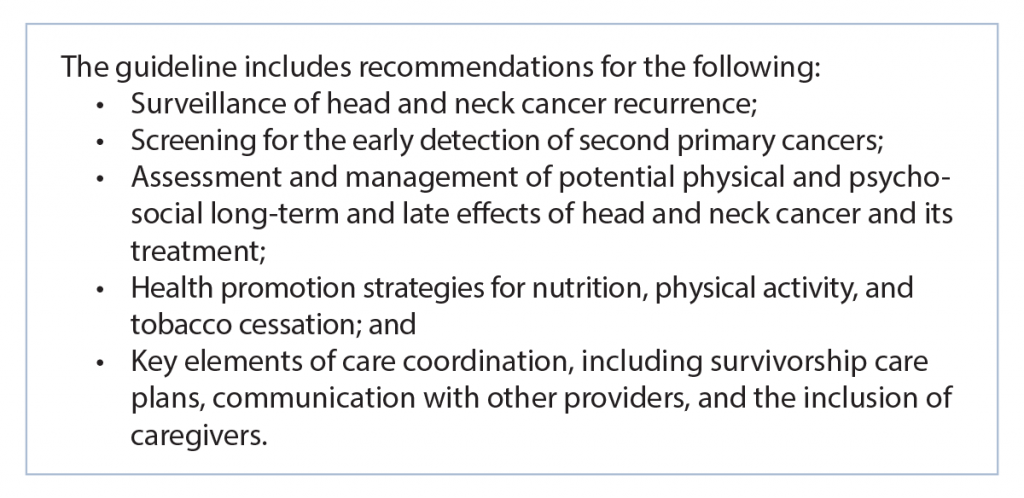American Cancer Society guidelines, updated in 2016, cover surveillance, screening for second primary malignancies, assessing and managing physical and psychosocial long-term effects, promoting good health practices, and coordinating care among different providers (CA Cancer J Clin. 2016;66:203–239) (See American Cancer Society Head and Neck Cancer Survivorship Care Guideline).
Explore This Issue
April 2017
(click for larger image) American Cancer Society Head and Neck Cancer Survivorship Care Guideline (2016).
Source: CA Cancer J Clin. 2016;66:203-239.
Surveillance visits suggested by the guidelines include a checklist of nearly 30 items, which is not feasible for many providers, but Dr. Campbell emphasized the most practical considerations. “How do these people return to work? How do we help them become functional again?”
Giving out “survivorship care plans” that include a summary of staging and treatment, though, did not work very well in a small study with a three-year follow-up. Most patients didn’t have the pamphlets or even remember ever getting one. “We need to find better ways to get that information to our patients,” Dr. Campbell said.
He added that follow-up visits rarely find a new cancer and that physicians need a new understanding of the goals of long-term surveillance. The main issues are more subtle. “We need to listen to their stories,” he said, “and understand that there are a lot of other issues to which you and I as their care providers need to be attentive.”
Thomas Collins is a freelance medical writer based in Florida.
Take-Home Points
- HPV-positive oropharyngeal cancer is projected to become the most common head and neck cancer by 2030.
- An HPV-positive finding can help identify the site of unknown primary tumors and guide treatment.
- De-intensifying both surgical and radiation treatment can be effective in some patients.
- Patients and their partners should know that an HPV-positive diagnosis is not necessarily a sign of sexual promiscuity or unfaithfulness.
- Survivorship issues, including life function and psychosocial problems, are becoming more and more important as patients with HPV-positive cancers live longer.